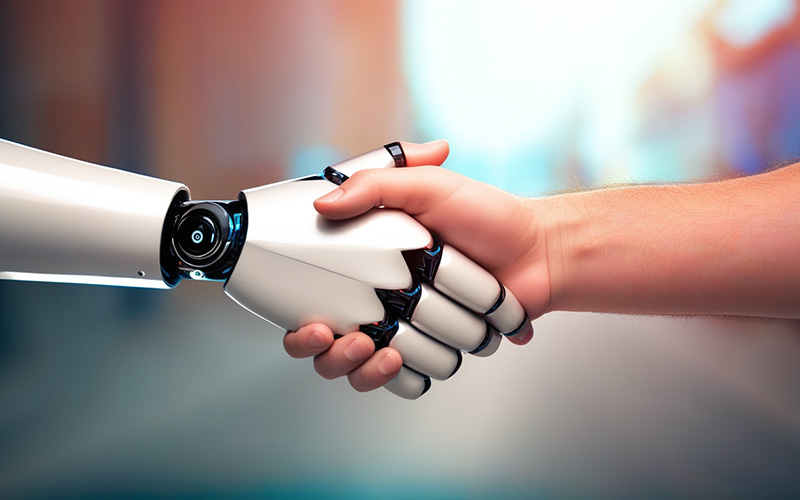In today’s fast-evolving academic landscape, technology is no longer just a support tool—it’s a strategic partner in shaping the future of education. From admissions and resource allocation to student performance tracking, AI in academic decision making is gaining significant ground. As institutions embrace digital transformation, the integration of artificial intelligence in education offers new ways to enhance learning experiences, streamline operations, and improve institutional effectiveness.
With 2025 ushering in more sophisticated AI-driven decision systems, academic institutions worldwide are adopting AI to foster innovation and ensure data-informed decision making across departments.
How AI Supports Smarter Decision Making in Education
One of the most powerful aspects of AI in academic decision making is its ability to sift through massive datasets and extract actionable insights. Academic administrators are using AI to:

- Analyze student data for performance trends and risk factors
- Optimize admissions strategies by predicting applicant success rates
- Support curriculum planning by identifying knowledge gaps and content relevance
- Guide academic advising, offering tailored recommendations based on student behavior and learning patterns
This shift toward data-driven education enables universities to respond to student needs faster, make evidence-based policy decisions, and deploy resources more effectively.
Opportunities Presented by AI in Higher Education
The adoption of AI in higher education has opened doors to numerous opportunities, such as:
- Personalized Learning Paths: AI algorithms adapt learning content and pace to match individual student profiles, increasing engagement and performance.
- Predictive Analytics: Institutions can identify students at risk of dropping out and intervening early, reduce attrition rates.
- Administrative Efficiency: AI chatbots and workflow automation reduce staff workload and improve response times for routine tasks.
- Enhanced Faculty Support: AI tools assist in grading, content recommendations, and feedback generation, allowing educators to focus on high-impact activities.
With AI-powered decision making becoming more mainstream, these benefits contribute to a more responsive and student-centered education system.
Challenges and Ethical Concerns
Despite its promise, the use of AI in academic decision making is not without its hurdles. The most pressing challenges include:

- Data Privacy & Security: Protecting sensitive student data from breaches and misuse is paramount.
- Algorithmic Bias: Without proper checks, AI models may reinforce existing inequalities due to biased training data.
- Over-Reliance on Automation: Excessive dependence on AI could undermine human judgment in complex or sensitive situations.
- Lack of Ethical Standards: Many institutions lack clear frameworks for the ethical use of AI in higher education, raising concerns about transparency and accountability.
Addressing these issues will be critical to ensuring the responsible and fair use of artificial intelligence in education.
Case Studies and Real-World Applications
Several universities have already begun reaping the benefits of AI-driven decision systems:
- Georgia State University (USA): Uses predictive analytics to increase student retention by identifying students at academic risk and providing timely interventions.
- The Open University (UK): Leverages AI to deliver personalized feedback and adaptive learning content to distance learners.
- EduTech Global’s Partner Institutions: Through its cutting-edge education technology solutions, EduTech supports institutions in deploying AI-powered tools that aid in student tracking, performance forecasting, and strategic planning.
These real-world applications showcase how AI in academic decision making can enhance both learning outcomes and institutional operations.
Looking Ahead: The Future of AI in Academic Decision Making
As we look to the future, AI in higher education is poised to become even more embedded in everyday academic processes. We can expect:
- Wider use of generative AI for content creation, assessment, and research support
- Advanced learning analytics for holistic student profiling and personalized support
- AI governance frameworks guiding ethical implementation and transparency
- Deeper human-AI collaboration where educators use AI as a co-pilot rather than a replacement
To harness these innovations responsibly, institutions must invest in digital literacy, infrastructure, and ethical AI training.
Conclusion
The rise of AI in academic decision-making signals a transformative shift in how educational institutions operate and serve their students. While the road ahead is filled with both exciting opportunities and pressing challenges, the potential of artificial intelligence in education to reshape the academic world is undeniable.
At EduTech Global, we’re committed to supporting universities and institutions in embracing data-driven education through reliable, secure, and impactful solutions. If you’re exploring how to integrate AI into your institution’s academic and administrative decision-making processes, reach out to the EduTech Global team today—let’s shape the future of learning, together.

